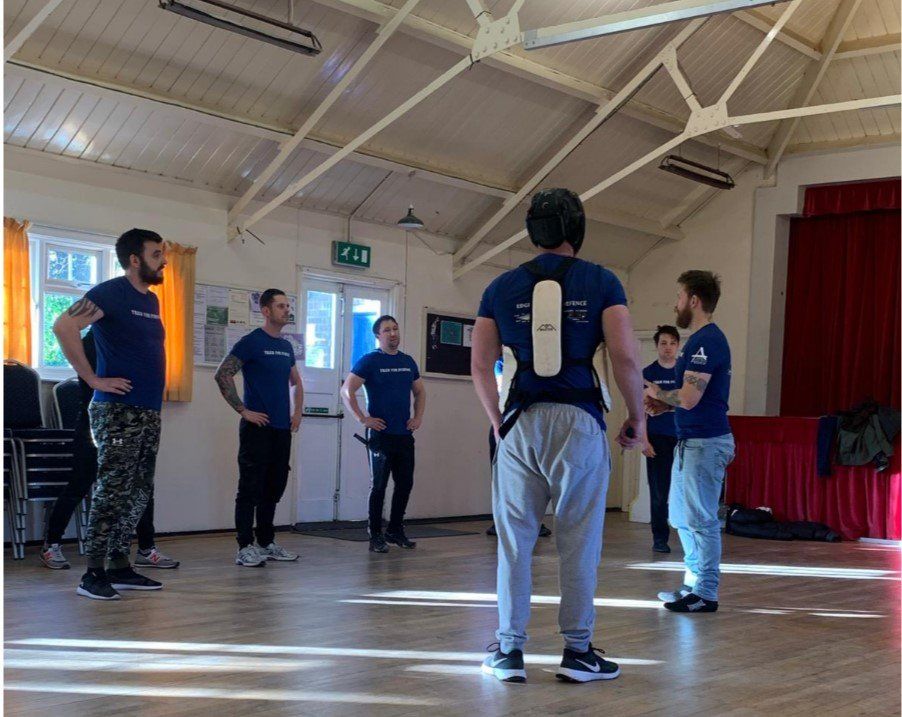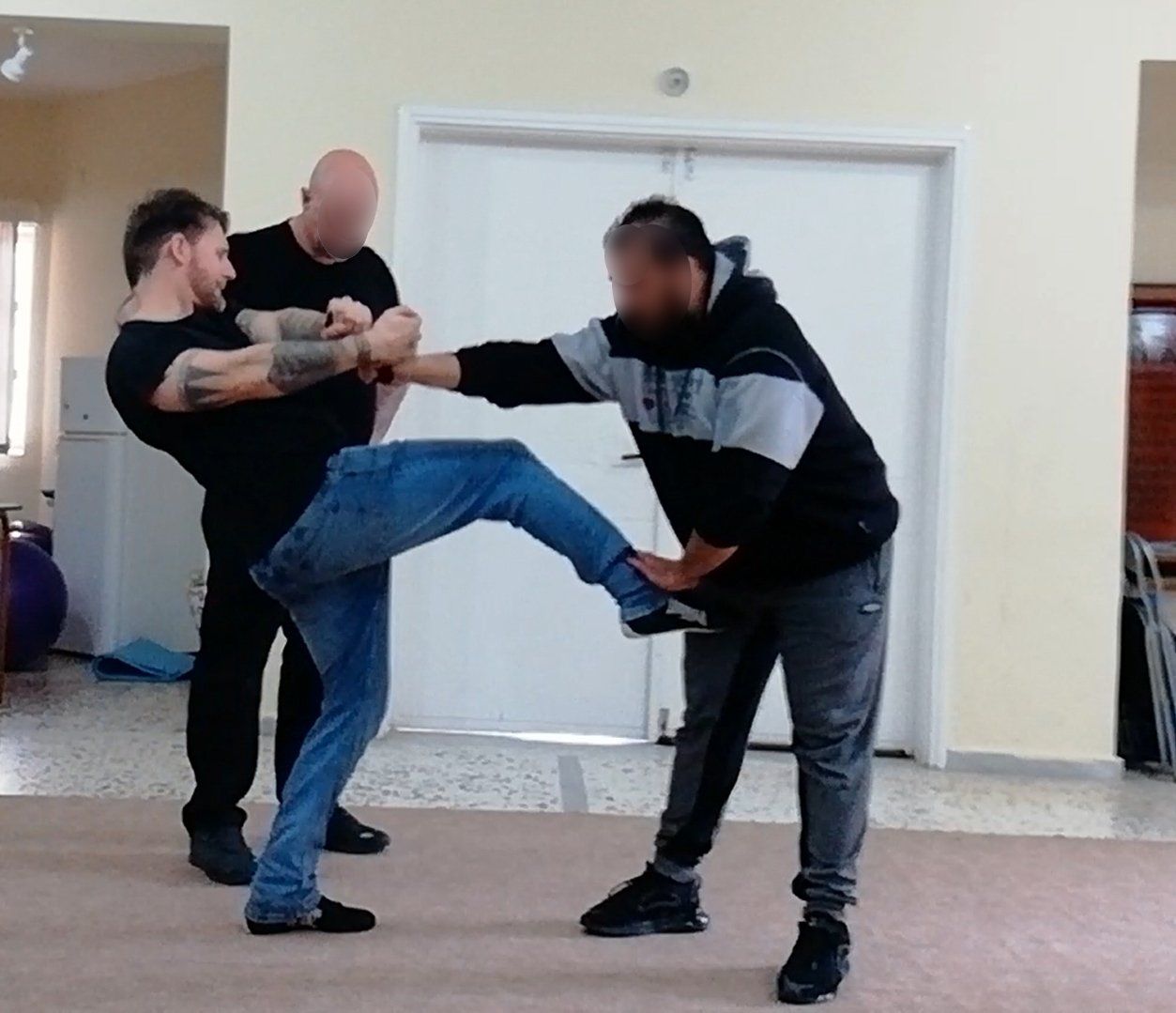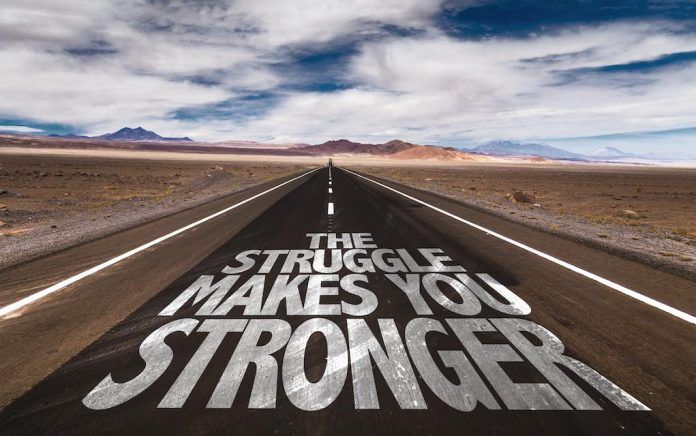Road Traffic Collision

Introduction
Road Traffic Collisions are a subject that we don’t talk about or cover in the security industry as much as we probably should. Whether we are Security Drivers, Close Protection Operators, Surveillance Operators or Hybrid operators providing a mix of all these services the truth is we spend a great deal of time on the road, sometimes driving our client’s around in executive or hostile environments other times in the case of surveillance work, on a follow.
I’m a hybrid operator and I spend a lot of time on the road, and I’m constantly witnessing the poor and sometimes downright dreadful driving of other road users. I’ve witnessed people driving while they are still half-asleep when I’ve been on early morning starts. I’ve witnessed people applying their make-up. I’ve seen others in the dreaded rush to work or rushing around for the school run, in so much of a hurry to get to where they are going that they do not seem to be paying attention to what is going on, on the roads around them. All these common examples of poor driving can lead to a higher chance of Road Traffic Collision (RTC), yet this is all part and parcel of the job. Most of us are prepared, some of us have received advanced driver training and I have added a few standard operating procedures (SOP’s) into my working life. For example, I carry a very extensive medical kit in my work vehicle. I never leave home or the office without it. It comes everywhere with me no matter whether I am working or not. I also have a smaller medical kit that I carry on my person, it normally lives in my operational task grab bag, and ensure that when I’m walking around or using public transport as is the nature of our work, I am prepared for to respond to emergencies.
Last month I was involved in an RTC
So let me set the scene… it was the weekend, and my GF and I were up and out early as we had arranged to meet her family as we do from time to time for a family day out. We decided to take the GF’s car as it is more comfortable than my work vehicle and off we went… 10 or so minutes into our journey we were hit by another vehicle…
So what happened?
The woman that hit us was too close to the vehicle in front of her, initially the car in front applied the brakes as he approached a yellow light, then at the last moment, he decided to floor it and get through the intersection racing to beat the red light. Which he did… he was through and gone and never stopped or realized that he had caused a major traffic incident.
The woman jammed on her brakes and swerved to avoid hitting the car in front of her, which had now sped off. This resulted in her fish-tailing her car before wedging the front end into the metal safety railings at the intersection where her car got crumpled and stuck. In the process of her manoeuvre, and the fish-tailing the back-end of her car swung out and although I was on the other side of the road her back end hit us and spun us a little.
Thankfully I’ve had some advanced driver experience , so I turned to the skid and straightened out, before coming to a stopped a few meters down the road just before a roundabout, I moved to a safe parking area – checked that my GF was ok and asked her to stay with our vehicle while I went to check on the driver of the crumpled car and try to take control of the situation until the emergency service arrived.
So what happened next?
Being trained for situations like this, as I walked from where I had parked our car (GF’s car) I was already on the phone to the emergency services and gave them a situation report and a rundown on what had happened and how the accident had happened. Getting to the casualty didn’t take long and I reported her condition along with the location of the accident.
The woman was conscious, clearly in the early stages of shock and complaining that her neck hurt.
By now a sizeable crowd of onlookers and untrained by well-meaning individuals who wanted to help had gathered. In all this chaos what stuck with me was that as I turned around bless her my GF had exited our vehicle and started talking to the woman and was reassuring her. While I continued with my dynamic assessment of the situation… and organize the steps that needed to be taken to prevent further accidents and injuries.
The car needed to to be freed from the railings and moved to a safe place off the roadside where it would no longer be a traffic hazard. Someone needed to direct traffic around the accident. In spite of my training as a first responder and my concerns that the woman may have sustained a C-Spine injury people were trying to start to move the casualty.
In spite of my demands that the casualty should not be moved, with all that was going on “good Samaritans” did move her from her from the side of the road which was unsafe to our vehicle. A random man who claimed to be a First Aid Trainee showed up, after a few minutes he took out his Med Pack and did nothing, so asking him to control the traffic as I was concerned about secondary incidents around us.
I then returned my focus to the car. It had been freed from the railings and pushed to safety off the road. All bar one of the drivers that had stopped to free the vehicle and push it to safety returned to their cars and left the scene.
A police officer arrived at the scene shortly thereafter and wanted to take a statement which I gave as, while still trying to control the situation … then a hospital nurse then arrived and started to do basic observations on the casualty who was now starting to go into shock. We had to lay her down and keep her awake and warm but that was all we could do at the time. My GF made a call to the woman’s family but they said they live in Kent and couldn’t do anything.
It was about this point that the first aider decided he had somewhere to be and left us to it.
Within 10 minutes of the first aider leaving that position, there was a secondary accident at the same traffic lights this was caused by a passing driver watching what was going on and not paying attention to the road and rear-ending the car in front thankfully no one was harmed, just a little embarrassed.
The ambulance about 45 min after my initial call to the emergency services arrived at the scene. I gave them a basic hand over while they were getting their kit out. As it turned out they knew the nurse who had been doing the observations on the casualty and with the transfer of the casualty from the ground near our car to the ambulance, the GF and I now left the situation in their capable hands.
I talked to the police officer again gave my official statement and number. Took pictures of my vehicle and the casualty’s and was free to leave the scene. There are a few life lessons I learned from this incident that I wanted to pass on…
Lessons learned
At work as a security risk management professional, I am prepared. Whether I am with a team or operating on my own I am a trained field medic and first responder. In all work situations, I carry equipment and have Standard Operating Procedures (SOP) for the event of a medical emergency, whether the emergency is with the client or myself and I am sure this is true of all of my colleagues and peers within the industry.
However in this situation… In spite of my training and experience, I didn’t have any of my med-kit with me as it was in my vehicle (my work vehicle) and not my GF’s car.
No one at the accident (during the first 25 minutes) had any training except for me. Trying to keep command and control of untrained well-meaning civilians and a number of potentially high-risk situations at once, was never something I had given much thought to.
New measure I have now put into place
- I always carry a med kit no matter where I am going and have one in both our vehicles.
- After talking with my partner in kind of after-action talk we decided that she should also do a medical course so we both have the same knowledge and can work together in the future.
- I have decided that once a week I will do some sort of revision of medical skills.
Like all skill practice makes perfect and ongoing revision mitigates against ,skill fade.
As for command and control of well-meaning untrained civilians … that will be a blog for another day.

ARES TACTICAL CONCEPTS
16 Golden Cross Parade,
Ashingdon Road, Rochford. SS4 1UB
TEL : +44 (0) 7854 497635
Email:
info@arestacticalconcepts.com
_______________________________________________________
Legal
Open Hours
Mon - Fri: 06:00 - 22:00
Sat - 07:00 - 16:00
Sunday - 08:00 - 14:00
Timings may change due to Courses & Events
_____________________________________
Follow Us


